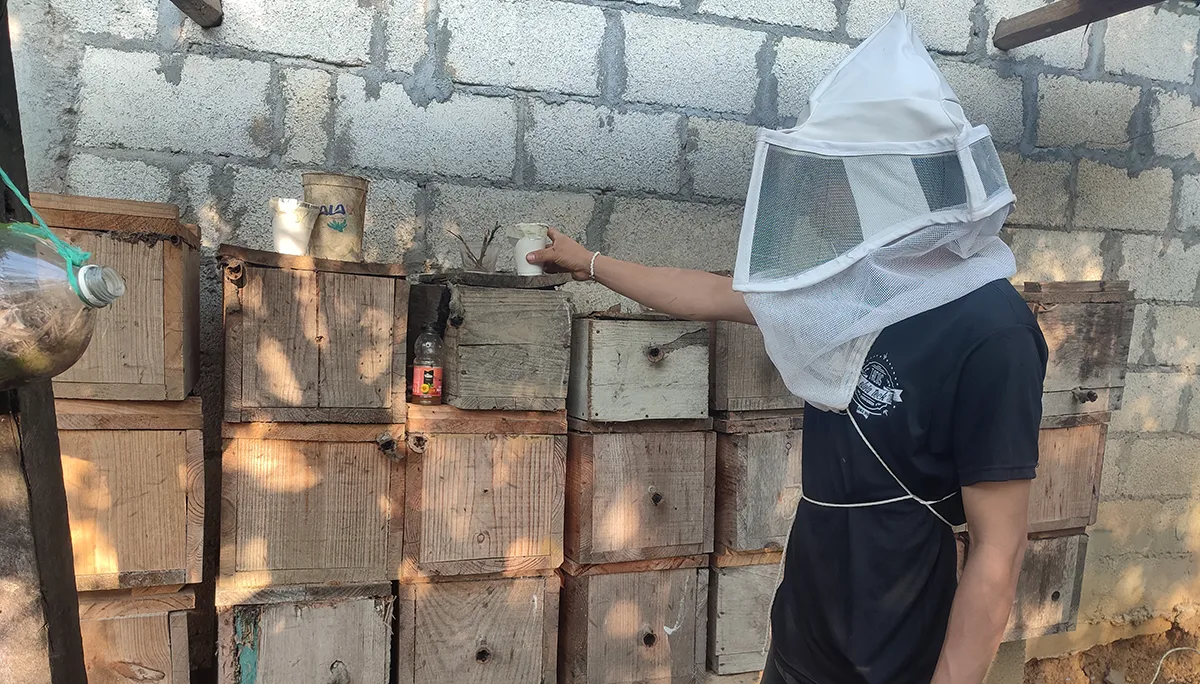Resilience of Nahua Native Species Beekeepers Households in Huasteca Potosina
Organization: Alterd Alternativas para el Desarrollo, A.C.
Mission: Alternatives for Development is an organization dedicated to carrying out activities to promote, manage, implement and evaluate community development actions and projects, in keeping with environmental, social and economic sustainability.
Location: State of San Luis Potosí, municipality of Coxcatlán.
Communities that will directly benefit from the project: Tazaquil, Tepozuapa and Suchiaco.
Country: Mexico
Other Organizations Involved: The Rural Development Department of the municipal government of Coxcatlán has shown an interest in supporting the project by providing material assistance, convening activities and facilitating access to public facilities and furniture for a municipal workshop on raising awareness on the importance and traditional management of native bees. It’s important to underline that the beekeepers themselves will be making an in-kind contribution by providing labor for certain project activities.

@ Alterd, AC
Background
The Nahua Indigenous families of the Huasteca region in San Luis Potosí face growing challenges due to the negative impacts of climate change on the natural environment and their livelihoods. These communities depend on traditional stingless beekeeping practices (meliponiculture), which are threatened due to environmental degradation and economic pressures. Droughts, extreme temperatures and invasive pests—all of which exacerbate existing scarcities of local flowering plants and water resources—are threatening native bee habitats that are crucial for the pollination of crops and wild plants.
This project seeks to strengthen the resilience of these families through sustainable strategies that will combine ancestral knowledge with technological innovations and promote community participation, development of local leadership and economic diversification. The project will empower beekeepers engaged in native bee care, improve the habitat on which these pollinating species depend, and ensure sustainability and food security in the region.
Goals
- Improve at least 80% of beehives.
- Establish at least ten new bee nuclei per family, of which at least two shall be relocated outside of areas of risk.
- Reforestation using 8,000 local melliferous plants, and achieve an 80% first-year survival rate.
- Have 90% of families succeed in passing on traditional knowledge about native species bee care to the younger generations.
- Establish at least one community pollinator garden for each target community.
- Sensitize 100 participants in the municipal workshop to the importance and traditional management of native bees.
Main activities
- Beehives will be equipped with roofs and floors and a tank and rainwater collection system installed to ensure the supply of water.
- New boxes will be made for at risk bee nuclei, as well as for those designated for relocation.
- Areas immediately adjacent to stingless bee nuclei will be reforested using local melliferous plants.
- Youth will be trained in the care of native bee species, using traditional practices and knowledge. In addition, new bee nuclei will be established (i.e., boxes will be made and populated) and entrusted to the care of these youth.
- With the participation of the community, and based on traditional knowledge, pollinator gardens will be created and outreach activities conducted on their importance for the preservation of native bees and other pollinators.
- Installations at the center for native bee care and honey harvesting will be upgraded and reorganized to make the process safer and more efficient.
- A municipal workshop will be organized to raise awareness of the importance to the environment of pollinators and of traditional management of native bee species. Interactive activities will encourage enhanced respect for, and care of, pollinators, as well as to incentivize environmentally responsible practices, in order to ensure the survival of these species and preserve healthy ecosystems.
Expected outcomes
- Native bees under the care of Indigenous beekeepers will be protected against the onslaught of climate change.
- Improvements will be made in the size and health of native bee populations, resulting in an increase in plant pollination, as well as, in turn, the restoration of local flora and fauna and contribute to biodiversity.
- The availability of flowering plants will increase, with positive results to the direct (natural) food sources of native bees, as well as on biodiversity recovery.
- Young persons in these communities will be empowered, not only in orientation toward native bee protection and care, but also to an economic alternative which provides a livelihood and lessens the need to migrate.
- The quantity of pollinators will be observed to increase and the community will take ownership of the pollinator gardens.
- An adequate and clean space will be established to care for at-risk beehives and harvest honey; beehive loss will be decreased, as will the risk of contamination of honey.
- Participants in the workshop and the initiative will clearly understand that their labor directly contributes to food production and biodiversity and are sensitized to the importance of the care and preservation of pollinators.